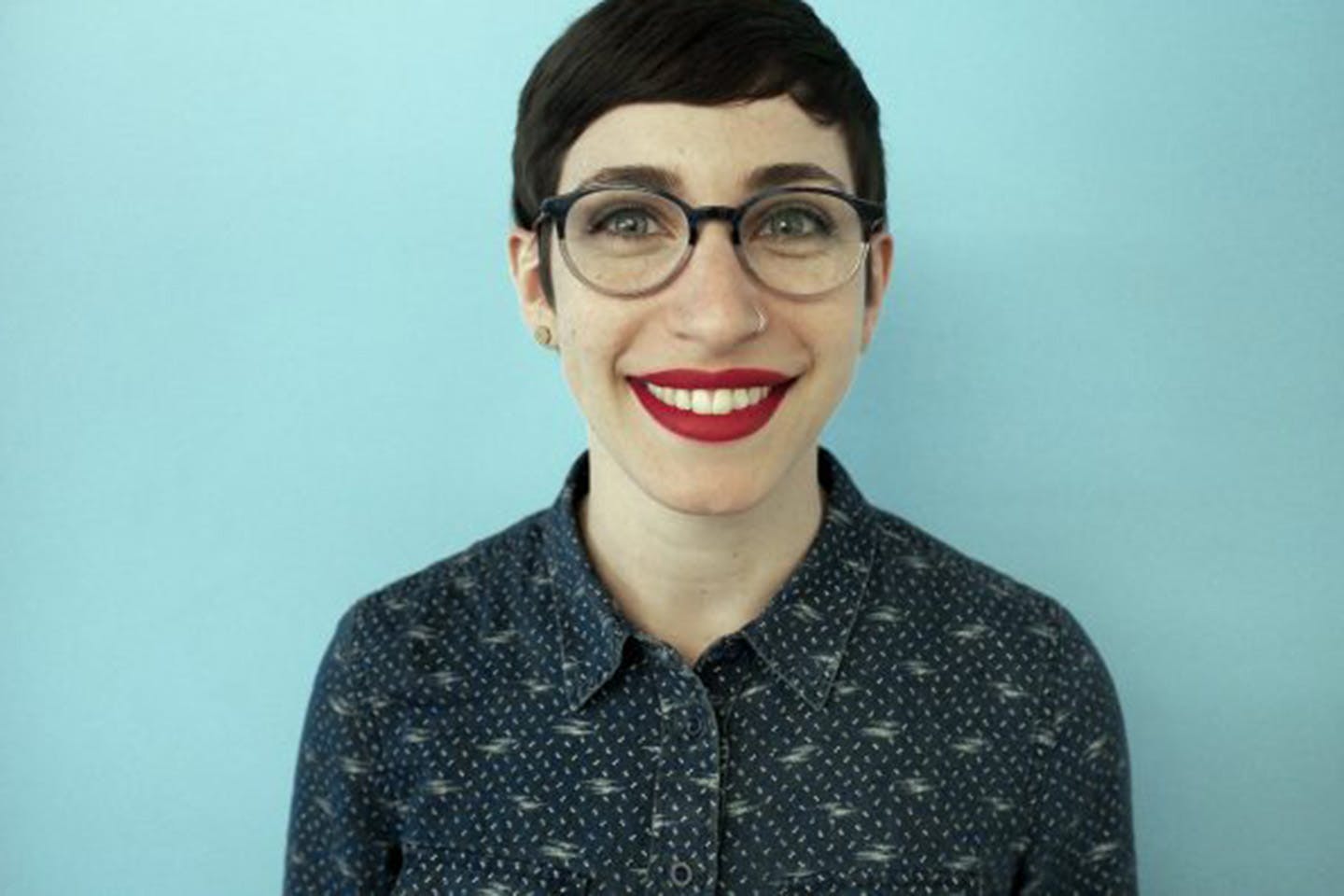
Lang '11
BA Global Studies ’11, Eugene Lang College of Liberal Arts
What are you working on now?
I'm really excited because I’ve just had a little bit of a shift in my role. I work for an organization called the Astraea Lesbian Foundation for Justice, which supports grassroots LGBTQI+ activists in the United States and around the world, and we're a public foundation, so we raise money and then we give it to support grassroots movements that are best able to define what justice looks like in their communities. My role is focused on all of the additional support that we can provide to strengthen their work that’s above and beyond the grant making that we do.
Right now, I'm beginning to do some planning to gather activists across Central Asia and the South Caucasus for a project that I’m really excited about. I’ll be working closely with our program staff who hold long-term relationships and experience in the region, but it’s very much a participatory process, in which we engage activists in the longer-term work of coming together and thinking about what that work looks like over time. We will probably bring folks together in different ways, both virtually and in person, to make the project possible.
When you started your program, what did you think you would be doing?
Part of what I loved about Eugene Lang College was that I had the flexibility to choose my courses and my academic journey at large. I took a lot of politics and environmental justice classes. At the time I was starting out, I was focused on water rights and sanitation and was active locally in New York, thinking about what it might be like for me to work for an international nonprofit organization. Environmental justice is something I’ve continued to be interested in both personally and professionally, and the work that I’m doing right now around gender justice is not divorced from that, but I do think that I’ve shifted from a development mindset to a human rights mindset.
What was a new way of learning that you experienced at The New School?
Lang is smaller than my high school; it was helpful to be in such small classes, with active student engagement. That enabled me to feel comfortable and have my own voice and to become more analytical and thoughtful; it pushed me forward in so many ways. I think that kind of active learning set me up well for my current job and also helped me become a good listener, thoughtful and reflective, as I continue to navigate the world. I had many phenomenal professors at Lang who were active in the fields that they were teaching in.
How did that change your way forward?
The methodology of the seminar-style classes at Lang encourages students to be active participants in their own learning and in their interactions with one another. It’s an important way to grow as a person. It’s not just about being proactive by speaking up in class but is also about finding ways to participate and engage with your fellow students and professors. I believe that’s a good model for supporting young people as they come into their own and learn and grow.
At Lang, it’s not about dictation or regurgitating what you hear in class or about what facts and figures are in the material; rather, it’s about engaging with what you read in a critical way. That critical lens is something that I bring to my own work, especially as I unpack my own privilege and explore what it means to do the kind of work I do through supporting and engaging with different communities.
Where do you see yourself in five years?
I feel that I’m a lucky person in that I love the work that I do, and I feel very grateful to work with badass activists from around the world. I hope to continue to do that. My work might take a different form in professional and personal terms in five years, but I think this kind of work is something I’m committed to regardless.
I also think that for much of my life, I’ve been a planner, thinking in terms of what things might be like in three, five, or ten years. I can finally let go of that pressure and allow myself to be guided by the opportunities that arise. I feel secure enough in who I am and what I’m doing to be able to do that. I would encourage young people who are in school and thinking beyond to do the same.
How do you want to leave your mark on the world?
One thing I learned and experienced at Lang and in this city is that it’s important to cultivate and develop strong relationships. I hope to leave my mark in both small and large ways and to feel that I’ve been a good friend and a good colleague—someone who can be relied on and who is supportive. I hope that through the work that I do, I can encourage others to be their best selves.